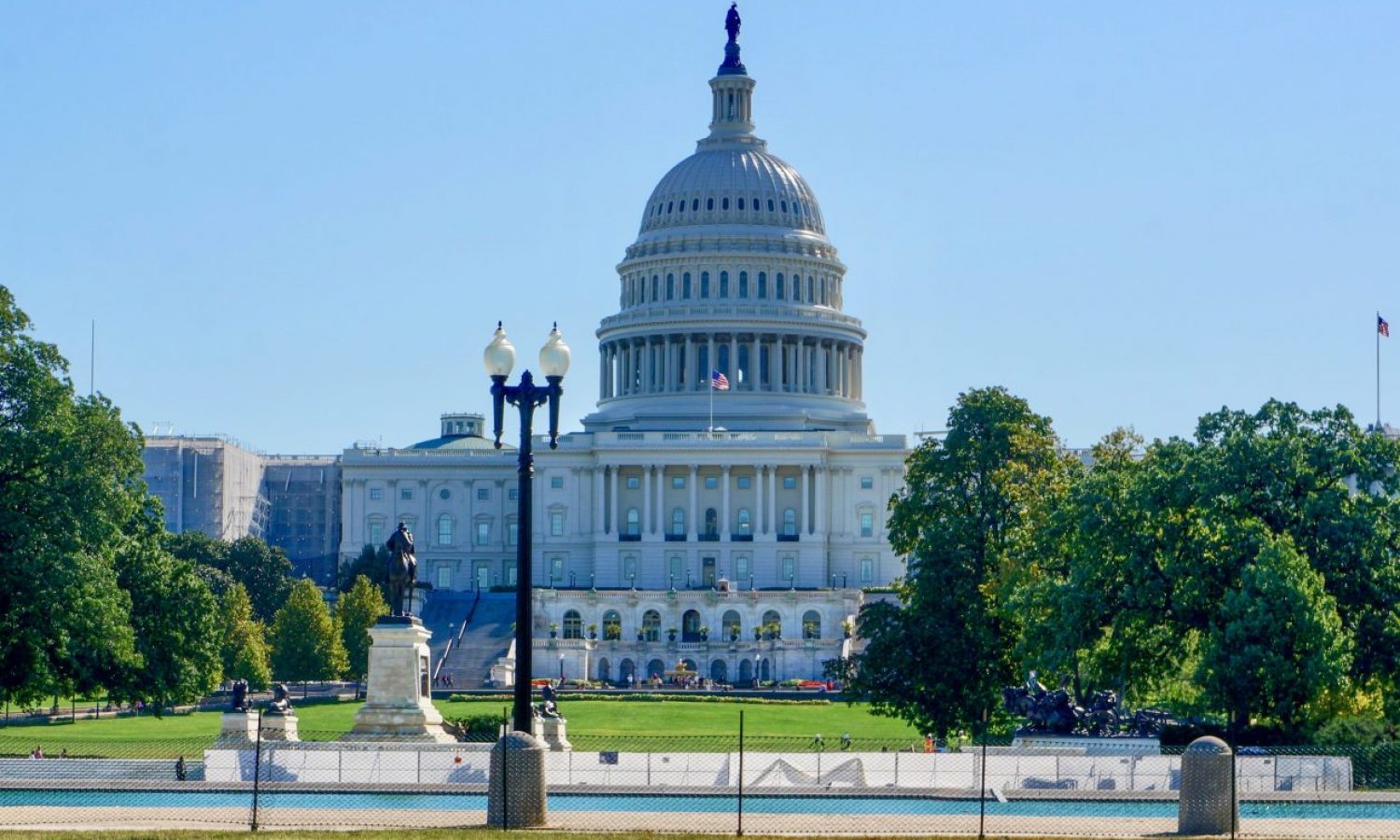i2Coalition Internet Infrastructure Policy Brief: April 2025
Your brief update on important Internet policy issues
OUTLOOK
Following a two-week spring recess period in mid-April, Republican leaders in Congress returned to Washington to conduct crucial work at the committee level drafting portions of a budget reconciliation bill encompassing many of President Trump’s immediate domestic policy priorities. The bill, which can be approved by a majority vote in the Senate, is expected to include provisions to cement the 2017 tax cuts, and provide tax breaks for manufacturers, tipped workers, and others, while adding funds for immigration enforcement, defense, and energy. Senate and House Republicans face significant intraparty challenges in reaching a consensus on sufficient spending reductions to offset the cost of the tax cuts. Republicans also want to increase the debt limit in the reconciliation bill. House Republicans aim to pass their version of the budget reconciliation bill by the Memorial Day holiday in May. The current target deadline for both House and Senate Republicans to approve a final version of budget reconciliation legislation and send it to the President for signature into law is July 4.
April 29 marked President Trump’s first 100 days in office in his second term, a period in which he directed his Administration to launch and press ahead rapidly on multiple fronts, including securing the border and accelerating deportations, expanding U.S. energy production, reordering global trade through tariffs imposed on all other countries, and massively overhauling operations to reduce both the size and costs of the federal government. The broad scope and frenetic pace of many of President Trump’s initiatives so far have generated significant controversy and business uncertainty on a global scale. President Trump’s aggressive tariff policy announcements during April roiled U.S. and international financial markets, spawned retaliatory responses, and raised fears about price increases and supply chain disruptions across the economy. Trump’s approach to trade has sparked concern in some quarters that the U.S. is needlessly ceding economic leadership and weakening longstanding global alliances. The Trump Administration temporarily eased some tensions by issuing a 90-day pause on some tariffs for all nations except China, opening the door for negotiations between the U.S. and other countries. The extent to which the Trump Administration’s announced reciprocal and other tariff policies are fully implemented remains intertwined with ongoing trade deal negotiations between the U.S. and other nations. As April closes, the Trump Administration’s top trade officials are seeking to reassure the American business community and consumers that progress is being made and that some trade deals with other nations will be announced within weeks, thereby reducing confusion, quelling unease, and restoring some marketplace certainty.
TECH POLICY PRIORITIES
Intermediary Liability/Content Moderation. As expected, following the U.S. Senate’s approval earlier this year, the U.S. House passed the TAKE IT DOWN Act on April 28 by a strong 409-2 vote. The measure, being sent to the President for signature into law, criminalizes publication of non-consensual intimate imagery (NCII) or the threat to publish NCII in interstate commerce and requires its prompt removal by covered platforms. In early April, federal officials from the DOJ, FTC, and FCC met to discuss coordinating their efforts to combat censorship and promote Americans’ free speech rights.
Federal Privacy. The Republican House Energy and Commerce Privacy Working Group is reviewing numerous comments submitted by stakeholders in response to its Request for Information about a framework for federal comprehensive data privacy and security legislation. The FTC published amendments to the COPPA Rule, which would, among other things, prevent targeted advertising for children without parental consent and set time limits on companies’ storage of children’s data.
Copyright/IP. Senators Marsha Blackburn (R-TN), Chris Coons (D-DE), Thom Tillis (R-NC) and Amy Klobuchar (D-MN) reintroduced the NO FAKES Act which would create a federal IP right to an individual’s voice and likeness. Senate Commerce Ranking Member Cantwell (D-WA) and Senators Blackburn and Heinrich (D-NM) reintroduced the COPIED Act, which would set new federal transparency guidelines for marking, authenticating and detecting AI-generated content, protect journalists, actors and artists against AI-driven theft, and hold violators accountable for abuses.
Antitrust/Competition. The Federal Trade Commission initiated a public inquiry aimed at identifying and reducing federal regulations that stifle competition, in response to a Trump executive order. The House Judiciary Committee Chair Jim Jordan (R-OH) has proposed using the budget reconciliation process to transfer the FTC’s antitrust authority to the Department of Justice. A U.S. District Court ruled that Google unlawfully acquired and maintained monopoly power in the online publisher ad server and ad exchange markets, using anticompetitive practices that harmed content creators and distorted competition.
Broadband. On April 22, the National Telecommunications and Information Administration published a waiver granting a 90-day blanket extension for states to submit final Broadband Equity, Access, and Deployment (BEAD) program proposals. A comprehensive review of the BEAD program is underway at the Department of Commerce to take a more technology-neutral approach and improve efficiency. The Senate Commerce Committee advanced the nomination of Olivia Trusty to serve as a Republican Commissioner at the Federal Communications Commission.
Find Out More…
For more in-depth updates on Internet policy, including issues that specifically impact your organization, please contact us about joining the i2Coalition.

